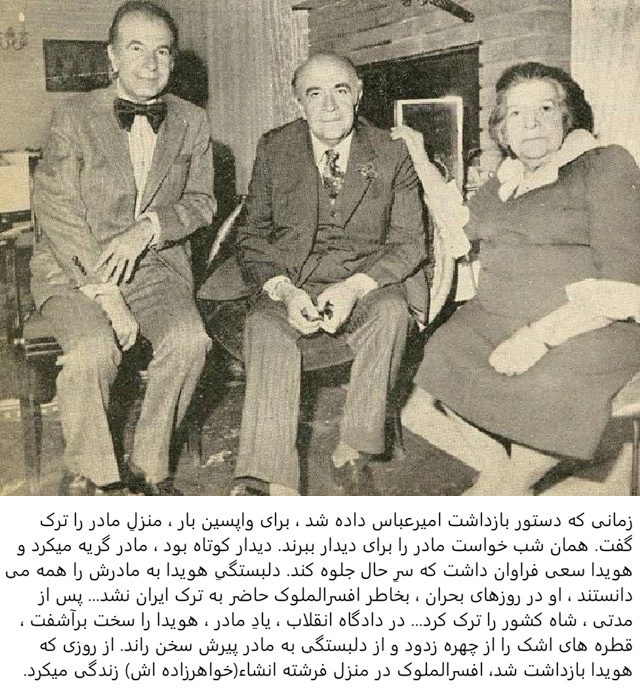Since her husband had diplomatic postings, Afsar-al-Moluk would almost certainly have been moving between countries (or at least living abroad) during parts of her children’s early years. She would have had to manage households, often in settings far from home, and manage relationships both within expatriate circles and local societies. She likely had to juggle cultural expectations: preserving Qajar culture, language, identity, while also adapting to life abroad.
Given that her son Fereydoun’s Wikipedia entry refers to her as “a Qajar princess,” and that the family maintained aristocratic associations, it is likely she inculcated a strong sense of family history, identity, manners, and perhaps a certain conservative or traditional layer of values. This kind of upbringing seems consistent with how Hoveyda later discussed himself — someone cosmopolitan, educated abroad, but with roots in Persian culture.


